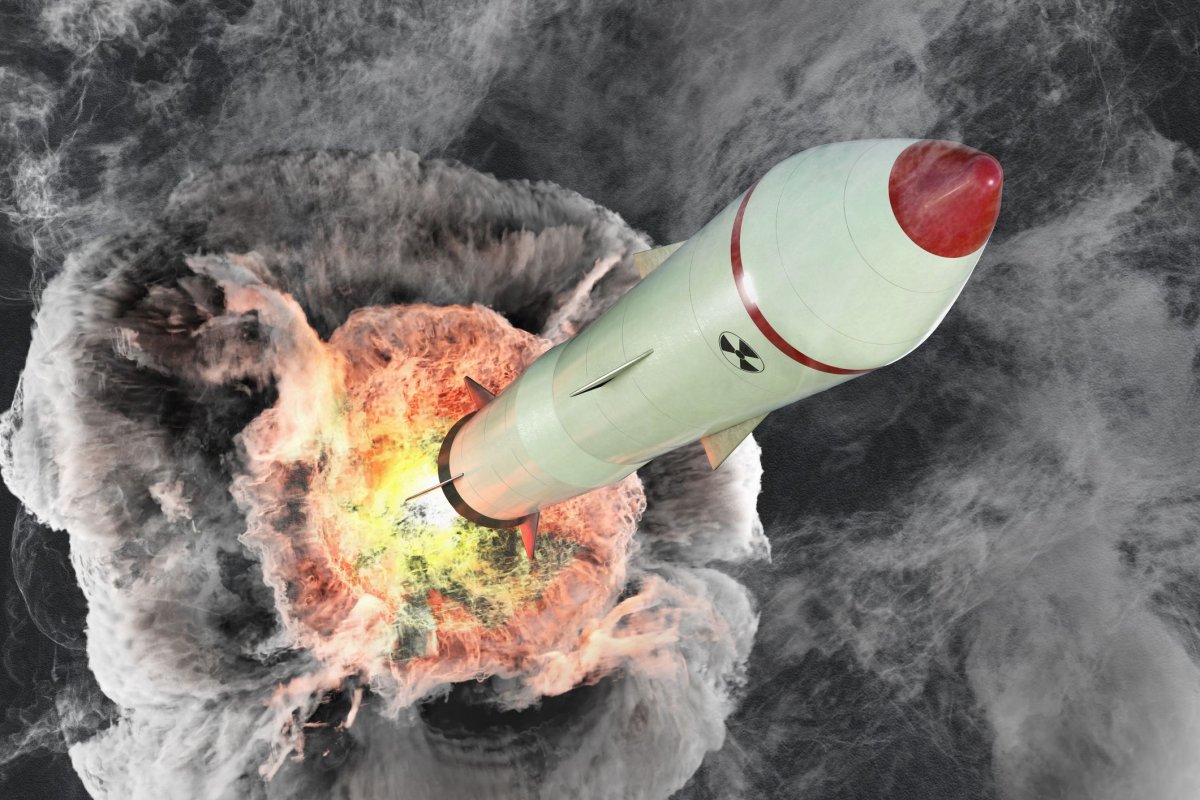Russian officials said they have developed a new weapons system that travels at 27 times the speed of sound, thus making it "impossible" to intercept with current missile defense technology.
The system, known as the Avangard hypersonic glide vehicle, "essentially makes missile defenses useless," Deputy Prime Minister Yuri Borisov told Russian state television on Thursday, Associated Press reported.
Related: Russia's new stealth jet to have hypersonic missiles up to 10 times faster than sound, report says
On Wednesday, the Russian military completed a successful test of the Avangard—according to the Kremlin—in which the weapon was launched from the Dombarovskiy missile base in the Southern Ural Mountains, striking a practice target 3,700 miles away in Kamchatka, a peninsula in the far east of the country.
President Vladimir Putin oversaw the test, commenting afterward that the weapons system would guarantee Russia's security for the foreseeable future and that it could be deployed as early as next year.
The weapon allegedly is impossible to intercept with existing anti-missile defenses because, unlike previous intercontinental ballistic missiles, which follow a predictable trajectory, the Avangard constantly changes its course and altitude as it flies, according to Sergei Ivanov—an adviser to Putin and former Russian defense minister who spoke during the televised press conference.
Ivanov said that Russia currently has 12 newly manufactured Avangard missiles, which were developed at relatively low cost. Furthermore, they can be housed in existing silos, removing the need to build expensive, specialized storage facilities.
"The Avangard has cost hundreds of times less than what the U.S. has spent on its missile defense," Ivanov said.
The former defense minister explained that Russia had begun developing the weapon system after the United States withdrew from the landmark 1972 Anti-Ballistic Missile (ABM) Treaty on June 13, 2002. At the time, President George W. Bush said the move would allow the U.S. to "protect against growing missile threats."
Many officials in the Bush administration were critical of the ABM, describing it as a relic of the Cold War and arguing that it prevented the development of an American national missile defense system, according to the Arms Control Association.
Following the U.S. withdrawal from the ABM, Ivanov said Russia was worried that the development of an American missile defense system could mitigate the effectiveness of his own country's nuclear deterrent. This fear sparked the development of the Avangard weapon system, Associated Press reported.
Nevertheless, Ivanov stressed that the development of the system was defensive in nature.
"We aren't involved in saber-rattling, we simply ensured our security for decades to come," he said.

Uncommon Knowledge
Newsweek is committed to challenging conventional wisdom and finding connections in the search for common ground.
Newsweek is committed to challenging conventional wisdom and finding connections in the search for common ground.
About the writer
Aristos is a Newsweek science reporter with the London, U.K., bureau. He reports on science and health topics, including; animal, ... Read more
To read how Newsweek uses AI as a newsroom tool, Click here.








